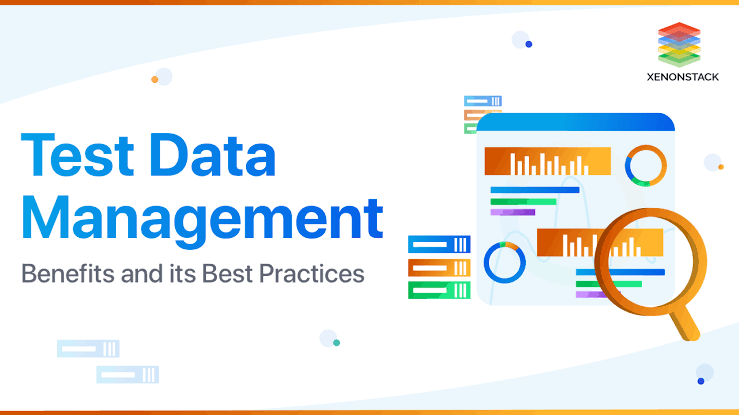Shopify Vs. Magento: Which One To Choose For eCommerce Development?

If you are confused between Shopify and Magento, you are not alone!
The debate has been going on for a long time about the best eCommerce development platform today. And if you want to come to a conclusion, you have come to the right place.
Let’s help you understand the best platform for your project so you can hire a Shopify eCommerce website development Company or a Magento agency.
So without further ado, let’s get started!
Shopify VS Magento eCommerce Platform
Let’s compare the two platforms based on numerous factors.
- Ease of use
If you choose an eCommerce platform that is complex to use, it can affect your online store’s performance. Especially, if you don’t have the technical expertise for development, it can be troubling.
If you compare the two platforms, Shopify is definitely easier to use. It has a simple user interface and the eCommerce store can be set up just by dragging and dropping elements. Thus, you can easily create a store of your choice by customizing it.
In comparison, Magento has a steep learning curve. Even developers take time to learn the nuances of the platform as it allows you extreme customization. With Magento, there’s no single or rigid way of store setup. You can develop a store just the way you want.
Winner – Shopify
- Marketing
Shopify provides a plethora of in-built marketing tools in addition to the multiple applications available in its app store. For instance, Klaviyo, Seguno, Constant Contact, etc. It has the ability to set up email campaigns or promote products on various social media platforms and sell directly using them on Instagram, Pinterest, and Facebook.
However, if you want to use Shopify apps, you might have to pay a hefty sum for them as the apps are chargeable.
Compared to Shopify, Magento doesn’t have any in-built marketing tools. Rather, you have to rely on marketplace tools for performing marketing operations like running email campaigns.
However, you will need to hire Magento programmers for integrating these extensions so you can market your store seamlessly.
Winner – Shopify
- Sales tools
Your ultimate goal in developing an eCommerce platform is to sell more products faster. In this venture, sales tools are of great significance. Those can help improve your sales performance.
Shopify comes with many exclusive features to improve your sales efforts. For example,
- Multi-channel selling – Shopify has an in-built feature that helps you to sell products directly via multiple channels such as Facebook, Instagram, Pinterest, Amazon, etc.
- Abandoned cart recovery – There are many instances wherein a customer may add products to the cart and forget about it or change their mind. But, a little persuasion can help you convert them. With the help of a reminder email, you may persuade some of them to purchase the products left in their cart.
- You can sell physical or digital products seamlessly with Shopify custom development.
- Shopify has partnered with IPS, USPS, Canada Post, and DHL express to save you from the problem of finding a good courier service.
Just like Shopify, Magento also comes with many in-built features to help your sales activities. For example,
- Abandoned cart recovery for persuading customers.
- You can also sell products across multiple channels by integrating your store via Instagram, eBay, and Facebook.
- You can totally customize your checkout page just the way you want. Hire Magento programmers and share your custom requirements to develop unique pages as desired.
- It is also possible to set a percentage or fixed price discount for products.
Winner – Magento & Shopify both provide extensive opportunities in terms of sales.
- Apps and integrations
Third-party integrations and apps can improve your eCommerce store’s performance greatly. It becomes all the more important to add such apps if the platform’s in-built capabilities aren’t enough.
Furthermore, integrations make it easier for programmers to develop features quickly and conveniently.
Shopify has its own app store with more than 2200 applications available in it. Some of these apps are available free of cost and some are premium. These apps cover a plethora of sectors and can help with cart abandonment, automatic email sharing, displaying security badges, help with Google analytics data import, and more.
Some famous Shopify apps are Trackr, Mailchimp, Analytics Buddy, Trust Hero, Buy Button Channel, Shopify Inbox, etc.
With Magento, you get to choose from over 5,000 plugins or extensions. Around 2,000 of these plugins come free of cost and can be used by developers you hire seamlessly. Out of the other premium extensions, nearly 10% of them cost about $30 approximately. The cost of plugins can range up to $2,000 depending upon their features and the development team that built them.
Moreover, if you hire a Magento 2 web development company, you will be able to create your own unique custom plugins. These custom plugins will ensure you don’t pay for any extra features that your store doesn’t need and have only the required functions.
Of course, the same holds for Shopify development as well. If you hire certified Shopify developers, they will be able to build custom apps based on your requirements.
Winner – Compared to Shopify, Magento’s app market is more well-organized and sophisticated. You can easily look for apps of your choice and integrate them into your Shopify store. However, the same is true with Magento but it requires extensive coding proficiency. Also, one has to decide if the plugins are authentic and secure to be used in their store.
- SEO
Magento comes with a comprehensive guide for SEO so that businesses can promote their stores through search engine optimization. It comes with many in-built options for SEO such as adding meta descriptions, alt tags for images, customizing URLs, etc.
As for Shopify, there aren’t many options for SEO except editing page titles or adding alt tags to images. For the majority of your SEO-based operations, you will have to integrate apps from the App store by paying additional charges.
Winner – Magento
- Help & support
Even if you hire the best Magento development company, you still might encounter a severe error that can delay your project’s progress. For such instances, reaching out to the community or help forums becomes inevitable.
For Shopify users, they have the option to reach out to any of the following options –
- Round-the-clock live chat support
- Community forum
- Help Center
- Video tutorials
- 24/7 phone support
- Social media support
- Email support
- Advanced specialist support
Since Magento is open-source, it doesn’t have a dedicated support system. However, it has a huge community of developers and contributors who can quickly help resolve any issues. Qualified professionals can assist you to solve any critical development issues conveniently.
These are some key differences between Shopify and Magento, as a platform. However, the most important thing is to find the best platform for your specific project. If you are a small or medium-scale business, Shopify might be a better choice.
But, if you have large enterprise needs, Magento is definitely the best option as it is scalable and doesn’t levy any transaction fee for each sold product.
So, decide according to your unique project needs. And no matter what you choose, it is always best to have professionals from a Magento or Shopify web development company by your side. They have the expert knowledge and skills to guide your eCommerce needs.
Summary: Which one is your ideal choice for eCommerce development? Shopify or Magento? Here, let’s look at the various points of comparison and decide the best one for your eCommerce store.
Author Bio:- Maulik Shah is the CEO of BiztechCS, a development company. He often takes the front seat in the company’s development projects, because he enjoys solving problems through technology. When it comes to writing for any blog, his contribution is priceless. Maulik ensures that his interaction with development is frequent enough, and his industry knowledge is ever-evolving, so that he can share it. Despite his packed days, Maulik’s door is always open and he is generous with sharing this knowledge and experience.






